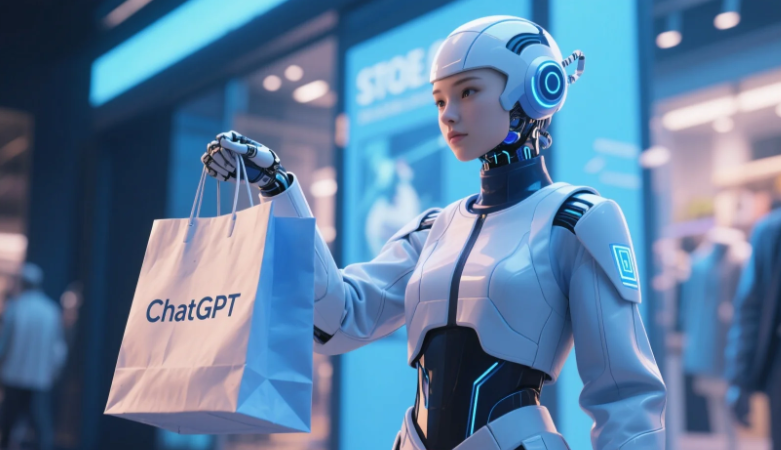OpenAI is going after Google LLC with a series of updates to ChatGPT’s search capabilities, including a new shopping experience that offers product recommendations and click to buy links.
The new shopping features announced in ChatGPT today will enable users to search for products and then purchase them after clicking on a link that redirects them to a merchant website, the company said. The update is being rolled out to all users, regardless of whether they’re signed into an account or not.
Wired.com first reported on the updates, having been privy to a demonstration of how the new shopping recommendations work. Users who ask ChatGPT for recommendations about products such as coffee makers or office chairs will be presented with various suitable products, based on their stated preferences, product reviews from multiple sources, and its “stored memories” of each user.
With the update, OpenAI is taking a shot across Google’s bow. The ChatGPT shopping experience closely resembles that of Google Shopping, so that when the user clicks an image of a product, it will show links to multiple retailers, like Amazon.com Inc. and Walmart Inc., that sell the item along with their prices. If a user clicks on the link, they’ll be able to purchase it from the respective retailer.
In an interview with Wired, OpenAI’s search product lead Adam Fry said the company is currently experimenting with a number of different product categories, including beauty products, electronics, home goods and fashion items. He explained that the reviews shown in ChatGPT’s results are obtained from multiple online sources, including publishers of buying guides, sites like Amazon and forums such as Reddit. Users can tell ChatGPT to prioritize a specific review source to narrow down their results.
Fry stressed that OpenAI is not trying to compete with Google’s algorithm-based approach to shopping recommendations. While Google’s opaque shopping search algorithm is believed to favor products with more considered and authentic reviews, ChatGPT seeks to understand how those reviews relate more specifically to what its users are looking for, and their previous expressed preferences. So if someone has previously told ChatGPT in another conversation that they prefer a certain style of dress, or favor a particular brand, it will remember this and bear them in mind when surfacing its recommendations.
Although the experience feels very similar to Google Shopping, Fry was quick to point out that ChatGPT doesn’t show any sponsored product recommendations. At least, not yet.
News quotes Fry as saying that OpenAI won’t be generating any revenue directly from sales enabled by ChatGPT, but Wired points out that it could impact the earnings of third-party affiliates.
For instance, Wired currently receives a cut anytime someone reads one of its product reviews and clicks through to buy that product. But ChatGPT users may make purchasing decisions based on these reviews, without clicking through to the website it was published on – effectively cutting out the affiliate, despite scraping its content.
When asked if OpenAI plans to compensate affiliates in any way, Fry said the company will “experiment” with various different ways to ensure they still get a cut of any deal, but refused to be drawn on any specifics. For now, he said, the company is more focused on getting its product recommendations right. So it may not be a great development for review websites that depend on affiliate revenue.
Fry also declined to comment on whether or not ChatGPT will eventually include sponsored results in its shopping recommendations. But if ChatGPT-based shopping takes off, it’s hard to see how the company can resist the temptation to do so.
In addition to the enhanced shopping experience, OpenAI said ChatGPT will now show a list of “top trending searches” made by its users. It’s also copying Google by integrating a new auto-complete feature, so when users start entering a query, it will show suggestions to save users typing out the entire question.
The updates underscore OpenAI’s determination to upend Google in the web search business. The company first rolled out web search capabilities in ChatGPT in October, enabling it to suggest products and analyze up-to-date information posted on the web. The company has also debuted an experimental “agentic” Operator tool, which allows ChatGPT to use a web browser to perform online actions on behalf of users.
Your vote of support is important to us and it helps us keep the content FREE.
One click below supports our mission to provide free, deep, and relevant content.
Join our community on YouTube
Join the community that includes more than 15,000 #CubeAlumni experts, including Amazon.com CEO Andy Jassy, Dell Technologies founder and CEO Michael Dell, Intel CEO Pat Gelsinger, and many more luminaries and experts.
THANK YOU











